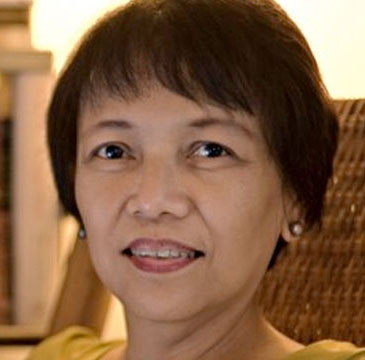SUMMARY
This is AI generated summarization, which may have errors. For context, always refer to the full article.
 Dear graduates,
Dear graduates,
As you step out into the real world, I’d like to leave you with a couple of messages. The first has to do with your participation in a national event in May and the second is about finding your place under the sun. Both of these have a common theme: citizenship and nation-building.
You can make these seemingly big and abstract words—citizenship and nation-building—real and alive in what you do.
First, the elections. Next month, our country will go through another exercise that is a favorite showcase of our democracy. It will be the first time most of you will vote. I encourage you to take part.
Consider this a rite of passage to political citizenship, to make your choices—through the ballot—matter. What is significant is that you and other young voters (ages 18 to 33) make up about half of the 52 million registered voters. That’s a formidable number, a group that can influence the outcome of the elections.
I’ve read that some of you are indifferent. Why should I vote, one asked, when, despite all the elections we’ve had, little has changed in our country? That’s like asking: why should I go to school, when through all the years that the universities have produced graduates, our country is still poor?
Change is a multi-faceted process that elections alone cannot bring about. But what elections can do, if you vote intelligently, is that you put good people in office who will make lives better for our communities, who will address the appalling inequity in our society.
This could be the mayor who uses technology to get better prices for the farmers’ produce, the congressman who mobilizes doctors, nurses and midwives to serve in rural clinics, and the senator who works hard for legislation that will level the playing field for business.
You cannot leave them alone, though, after elections. Like in a sport such as tennis, you need to follow through, so that your advocacies and ideas for change get to the politician’s court, and remain there until they are acted upon.
This is all part of building our young nation so that your generation and those of the next may live in better times, with education and jobs for all.
Passion and money
The second part is about the work you will take on. The world has changed since I graduated from college in the 70s, something unimaginable then. Today, the typewriter has become a museum piece and beepers are so passé.
That gadget in your pockets, that cell phone –which about 70% of Filipinos have access to–has made communications much easier. It has connected us to the rest of the country and the world. It has shrunk distances and collapsed time. We share our thoughts and feelings in an instant, much faster than preparing instant noodles.
Fortune is on your side. Technology is at your fingertips. You can use it to improve lives.
You can build on what others have already done. In India, for example, an IT company built a software program that runs on very inexpensive cellphones and provides illiterate farmers voice or text advisory, among others, on the best time to plant their crops. This information is gold to them and leads to lush harvests.
With our kind of geography, it is vital that weather alerts, which are much more accurate today, reach people early enough to prepare. That, too, is made possible by mobile phones.
Of course, the jobs that you will be looking for need not revolve around technology alone. But here’s what matters: when looking for work, how much you will make is important. But more important is: will you make a difference?
Two years ago, John Gabriel Pelias, a mathematics major with record-breaking grades graduated from UP summa cum laude. He decided to teach at the university rather than accept the alluring offers of top corporations. Let’s go back to what he said then: “You are not studying for yourself alone. You should use what you learn to help the nation progress.”
Whatever you choose to do, it should be something that you love, that you are passionate about. Making a difference will follow, whether as a teacher, writer, geologist, doctor, researcher, engineer, entrepreneur. If it pays well, then that’s a bonus.
You may not, however, immediately feel and see the impact of what you do. Be patient as these things take time. But you will know it as you see changes in the communities you’ve helped, in the people whose lives you’ve touched. By that time, you will know that you have found your place under the glorious sun.
Congratulations to the class of 2013! – Rappler.com
Add a comment
How does this make you feel?
There are no comments yet. Add your comment to start the conversation.